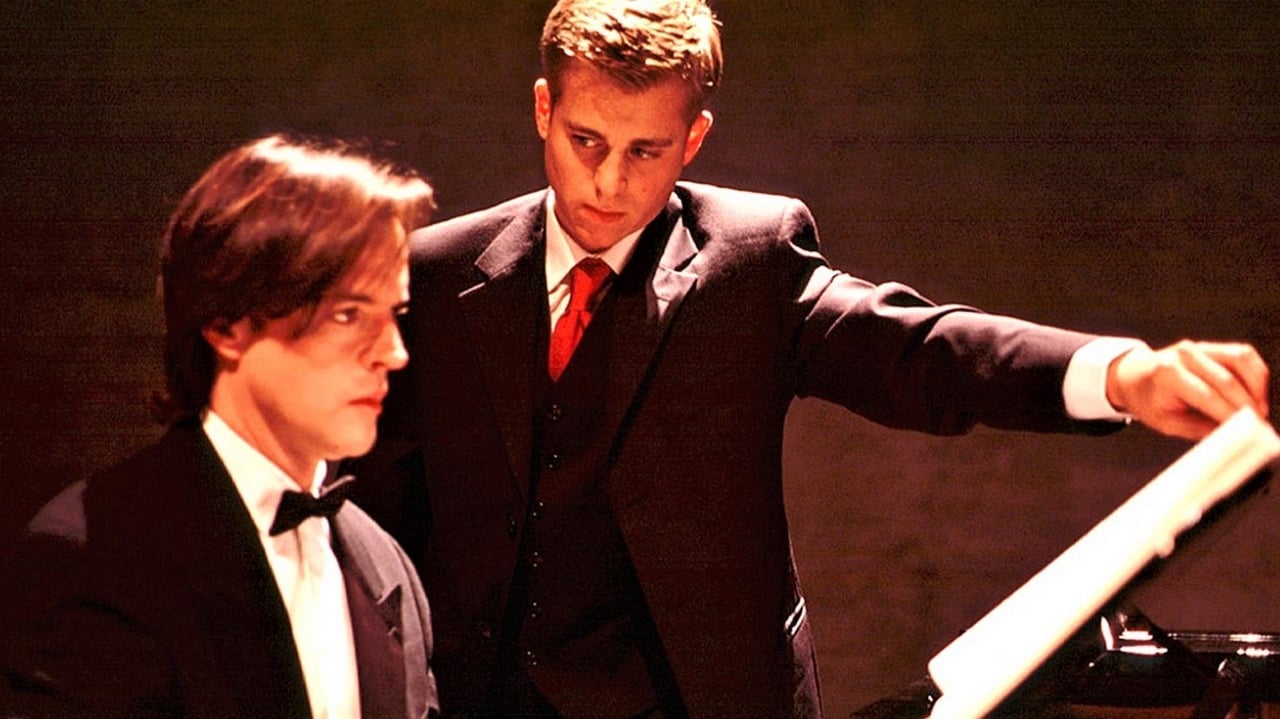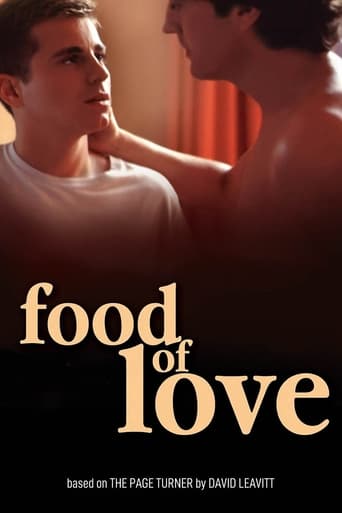

This film is one of my Top Ten Films of All Time, enshrined forever in the pantheon of great films. Everything about it is perfect, but most importantly, to be a great film it must be true - in other words - it must convey the "truth" of life - giving the viewer a slice of life that is true, that rings true, that is based on truth - that's what great art is about and this film is great art. I had never heard of Ventura Pons before but then I learned Food of Love is his first English film, although the version I have is dubbed in English, so I imagine the original was in Spanish. Does that mean the English speaking actors were dubbed in Spanish for the original? Enquiring minds want to know! Kevin Bishop, the young lead, is breathtakingly handsome yet he has a depth that sort of catches you by surprise because his beauty is so captivating. Juliet Stevenson, one of my favorites, is spellbinding in every scene - you cannot take your eyes off her - she is the core around which the entire story is built.
... View MoreI wanted so much to like this film, and I tried very hard to do so. But it is so inept, and has so many flaws, it is hard to know where to begin.The basic story is simple enough: piano student Paul is seduced by and falls in love with his idol, fortyish concert pianist Richard; he gets dumped inexplicably and spends the rest of the film trying to make sense of it. But add these extra ingredients -- Paul's neurotic mother also falling for the pianist, Richard's lover/manager seducing Paul while the boy is being kept by yet another older man -- and you have a rather heady Freudian stew, indeed.What these noxious, self-absorbed characters have in common, keeping the handsome 18-year-old confused and depressed, is their duplicity. Nobody tells Paul the truth, rendering him unable to make a decision in his own interest. His beauty makes him desirable. His ingenuous nature makes him an easy mark.The dialogue is oddly disjointed though lifted directly from David Leavitt's well-written novel, The Page Turner. For some reason, about half of Mr. Leavitt's lines have been deleted, making those that remain a crazy-quilt of non-sequiturs. Adding to the confusion are British actors playing American refracted through the eyes and ears of a Spanish director. Then there are the Spanish actors who have learned their lines phonetically, wildly inflecting words incorrectly. Finally, a classical music consultant could have insured the proper pronunciation of composers' names, or pointed out that most of the pieces Paul plays are embarrassingly inappropriate.What the film does do well is to depict the haute-gay classical music demi-monde of New York, and the predatory older men who rule from lofty Central Park West enclaves. This exclusive oligarchy devours the seemingly unlimited supply of hopeful young artists, like Paul, who want to succeed but cannot due to inexperience and inaptitude for the game. A 'civilized' veneer covers, but never quite hides, the self-serving artistic Darwinism.Exquisite Kevin Bishop, who plays Paul so perfectly, is a real find. He has a low-key style, lovely body, and astonishing blue eyes. Barcelona is exotic, the photography is beautiful, and the original score is well done, but the DVD itself has problems. The dialogue is somewhat out of sync, is overly loud in some places (mainly due to Juliet Stevenson's histrionics), and nearly inaudible in others.
... View MoreWhen I saw the movie, I expected the ending to be sad, since most of the gay-themed movies I have seen ultimately ends in tragedy. I don't know WHY this has to happen, but, let's admit it, it does. So I wasn't surprised if none of the main characters end up happy. Content perhaps - but not happy.Anyway, the best thing about the movie was Juliet Stevenson! Her portrayal as the "hysterical" mother is quite good. And I believe Derek above mentioned the chemistry between Paul [kevin bishop] and Richard [paul rhys] - which is absolutely true. But again as he says and I shall reiterate, it was too short a thing! I am a helpless romantic and so I would rather they ended up together. But - alas!The movie is not slow paced it moves along just fine...the progress of Paul from an idealist to one who accepts the reality of the world he lives in is touching ... elements of 'what-if's' abound, the duplicity, the jealousies and the vindictiveness in human nature as well - and all of this lends to the tragic distortion of romance in the movie.The relationship between mother and son however is endowed with vibrancy and the final scene where she accepts her son's homosexuality is beautiful despite its figurative rendition in the discussion of Ganymede being the largest moon of Jupiter. If you are looking for a happy ending, watch something else. :)
... View MoreI enjoyed the movie, but it seems to me it is mistitled. The only love in the movie was between Paul and his mother, who seemed to suffer from some emotional problems, but their love at least seemed genuine. Basically this is a story about a talented young cute kid who gets in over his head. Paul is used by Kennington, who is Paul's idol. Then Paul gets used by Kennington's manager/lover. Paul does have a relationship with another older man but we don't get to see much about that relationship, but again it seems he is being used as a boy toy. Being that Paul is very young I can only hope he learned from these bad experiences, and pursues his real dreams.
... View More